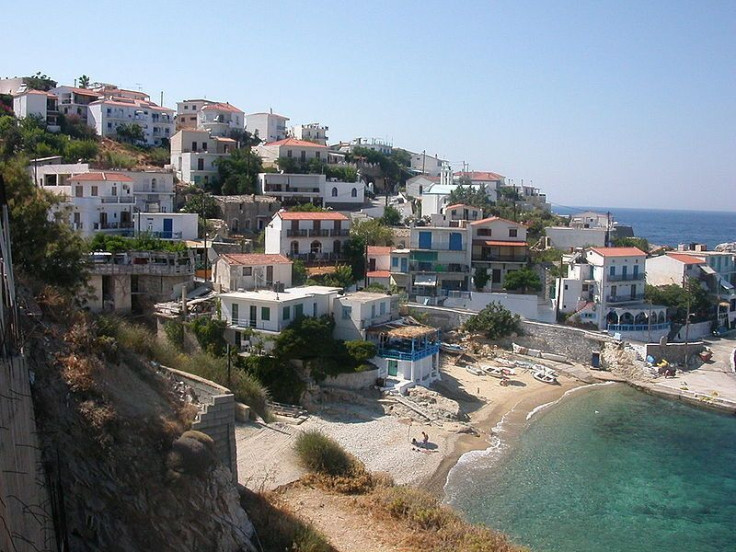The Island of Ikaria: Where Healthy Lifestyle, Long Life May Overcome Cancer

Stamatis Moraitis, a Greek war veteran, came to the United States in 1943. He embraced his new American life: getting a job performing manual labor, marrying a Greek-American woman named Elpinki, having three children, and owning a Chevrolet. When Moraitis was in his sixties, he began feeling short of breath. When he went to the doctor's office, he was informed that he had lung cancer. Nine doctors confirmed the diagnosis. Moriaitis was told that he had nine months to live.
Moraitis thought about seeking aggressive cancer treatment, but decided against it. He chose instead to return to his village on the Greek island of Ikaria, where he could be buried with his ancestors and funeral costs would cheaper, leaving more money for his wife. He and Elpinki moved back to Ikaria, where they boarded with his parents. At first, Moraitis was still ill. But, as months progressed, Moriatis began to feel better. Today, Moriaitis is cancer-free and 97 years old, though he insists that he is 102 years old - no drugs, no chemotherapy, no treatment of any kind.
The island of Ikaria has long been famed for the long lives of its residents. For 25 centuries, Ikaria has been celebrated as a health destination for Greeks. It is not at all unusual to see centegenarians walking around. Ikarian men are four times as likely to live to 90 as their American counterparts. Seniors in Ikaria live, on average, 8 to 10 years longer before suffering from cardiovascular disease. In the United States, the Alzheimer's Association estimates that 1 in 8 older Americans suffer from Alzheimer's disease; in Ikaria, residents suffer from Alzheimer's at a quarter the rate.
What accounts for the difference? After all, the island of Samos, just eight miles away, does not boast longer lives in its inhabitants than the residents on the mainland. But researchers hold an abundance of clues, all of which likely provide a piece of the puzzle.
No one in Ikaria has a watch, so no one has any concept of being late. People stay up late, but they also wake up late, when their body clocks tell them to rise. Among men 65 years of age and older, 80 percent reported having regular sex. It is considered normal to have to climb 20 hills a day. There is no crime, because everyone knows everything about everyone, and people entertain visitors daily. Though unemployment is high, at 40 percent, there is never any fear of having no food on the table; most people have gardens that provide the majority of their food. The local "mountain tea" is seen as a comforting beverage, but also doubles as medicine; wild mint treats gingivitis and gastrointestinal disorders, rosemary is used to fight gout, Artemisia improves blood circulation, and many of the herbs have mild diuretics, which doctors use to fight high blood pressure.
The diet too is considered helpful against a wide range of health issues: olive oil, vegetables, potatoes, a moderate amount of alcohol, beans, wild greens, and low amounts of meat and dairy, with the exception of goat milk. All had benefits for the cardiovascular system and could fight against diabetes and perhaps Parkinson's disease. There are few refined sugars. And, because the food is all obtained locally, Ikarians have to contend with fewer pesticides and greater amounts of nutrients.
Scientists believe that the single greatest factor in explaining Ikarians' long lives, though, is the fact that the healthful lifestyle is shared as a community. However, it appears to be slipping away. Potato chips are now sold at village markets, and soda is replacing tea as the preferred beverage of the young. It seems that, as each generation passes, the long lives become less long.
The New York Times asked Moriaitis for the explanation for his miraculous recovery from cancer. He said that he returned to the United States for an explanation himself. When he arrived, he said, "[his] doctors were all dead."



























